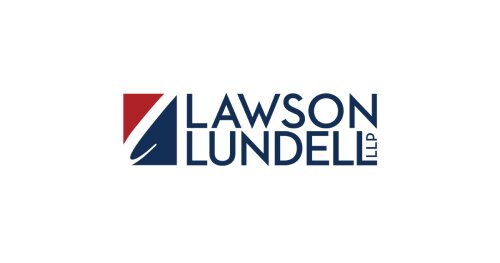Best Pension Lawyers in Canada
Share your needs with us, get contacted by law firms.
Free. Takes 2 min.
Or refine your search by selecting a city:
List of the best lawyers in Canada
About Pension Law in Canada
Pension law in Canada is governed by a combination of federal and provincial legislation. The primary objectives are to ensure that individuals have a stable financial foundation upon retirement and to regulate how pension plans are established, managed, and disbursed. In Canada, pensions can be divided into two main categories: public pensions, such as the Canada Pension Plan (CPP) and Old Age Security (OAS), and private pensions provided by employers or purchased individually.
Why You May Need a Lawyer
Seeking legal advice in the field of pension law is crucial for several reasons. Firstly, if you are facing issues with your employment pension plan, such as discrepancies in your pension payments or disputes over entitlements, a lawyer can help clarify and resolve these matters. Additionally, changes in life circumstances, such as a divorce, can affect pension entitlements, necessitating legal guidance. A lawyer can also assist those who wish to challenge pension plan management decisions or need help navigating the complexities of pension litigation.
Local Laws Overview
In Canada, pension law's main legal framework is provided by the Pension Benefits Standards Act (PBSA) at the federal level, supplemented by provincial legislation like the Ontario Pension Benefits Act (PBA). Key aspects of these laws include the regulation of pension plan solvency, the protection of employee pension rights, and ensuring fair pension administration. Additionally, tax laws impacting pensions, such as the Income Tax Act, play a significant role in how pensions are treated concerning other income.
Frequently Asked Questions
What is the Canada Pension Plan (CPP)?
The CPP is a contributory, earnings-related social insurance program designed to provide retirement benefits, as well as disability and survivor benefits, to Canadians.
How does Old Age Security (OAS) differ from CPP?
OAS is a non-contributory pension available to most Canadians aged 65 or older. It's funded through general tax revenues and is not dependent on one's work history.
Can I receive both CPP and OAS benefits?
Yes, eligible Canadians can receive both CPP and OAS benefits simultaneously.
What are defined benefit and defined contribution pension plans?
A defined benefit plan provides a predetermined retirement benefit, while a defined contribution plan's benefit depends on the contributions made and investment performance.
How do I handle pension payments in a divorce?
Pensions are considered family property and may be subject to division. Consulting with a legal expert is advisable to navigate this process effectively.
What happens to my pension if I change jobs?
Your options vary depending on the pension plan's rules, but generally, you might transfer the value to another plan or a locked-in retirement account.
Are there tax implications on my pension income?
Yes, most pension income is taxed as regular income. Specific tax rules apply, including pension income splitting for eligible individuals.
How does one qualify for survivor benefits from CPP?
Survivor benefits are available to the surviving spouse or common-law partner of a deceased CPP contributor, with certain eligibility criteria.
What is the maximum CPP benefit amount?
The maximum amount one can receive from CPP depends on several factors, including the length of contribution and earnings during one's working years.
How do I dispute a decision regarding my pension benefits?
Consulting a lawyer is often necessary to challenge pension decisions, whether appealing internally within a pension plan or proceeding with legal action.
Additional Resources
For further assistance, consider reaching out to the following resources: - The Government of Canada's pension services for official information on public pensions. - Financial Consumer Agency of Canada for advice on choosing private pension plans. - Provincial agencies and offices that provide specific advice regarding regional pension legislation and disputes.
Next Steps
If you find yourself needing legal assistance with pension-related issues, start by documenting all relevant communications and information about your pension plan. Next, seek a consultation with a lawyer specializing in pension law to discuss your situation and explore your legal options. The legal representative can guide you through resolving your dispute and help protect your retirement interests effectively.
Lawzana helps you find the best lawyers and law firms in Canada through a curated and pre-screened list of qualified legal professionals. Our platform offers rankings and detailed profiles of attorneys and law firms, allowing you to compare based on practice areas, including Pension, experience, and client feedback.
Each profile includes a description of the firm's areas of practice, client reviews, team members and partners, year of establishment, spoken languages, office locations, contact information, social media presence, and any published articles or resources. Most firms on our platform speak English and are experienced in both local and international legal matters.
Get a quote from top-rated law firms in Canada — quickly, securely, and without unnecessary hassle.
Disclaimer:
The information provided on this page is for general informational purposes only and does not constitute legal advice. While we strive to ensure the accuracy and relevance of the content, legal information may change over time, and interpretations of the law can vary. You should always consult with a qualified legal professional for advice specific to your situation.
We disclaim all liability for actions taken or not taken based on the content of this page. If you believe any information is incorrect or outdated, please contact us, and we will review and update it where appropriate.
Browse pension law firms by city in Canada
Refine your search by selecting a city.














